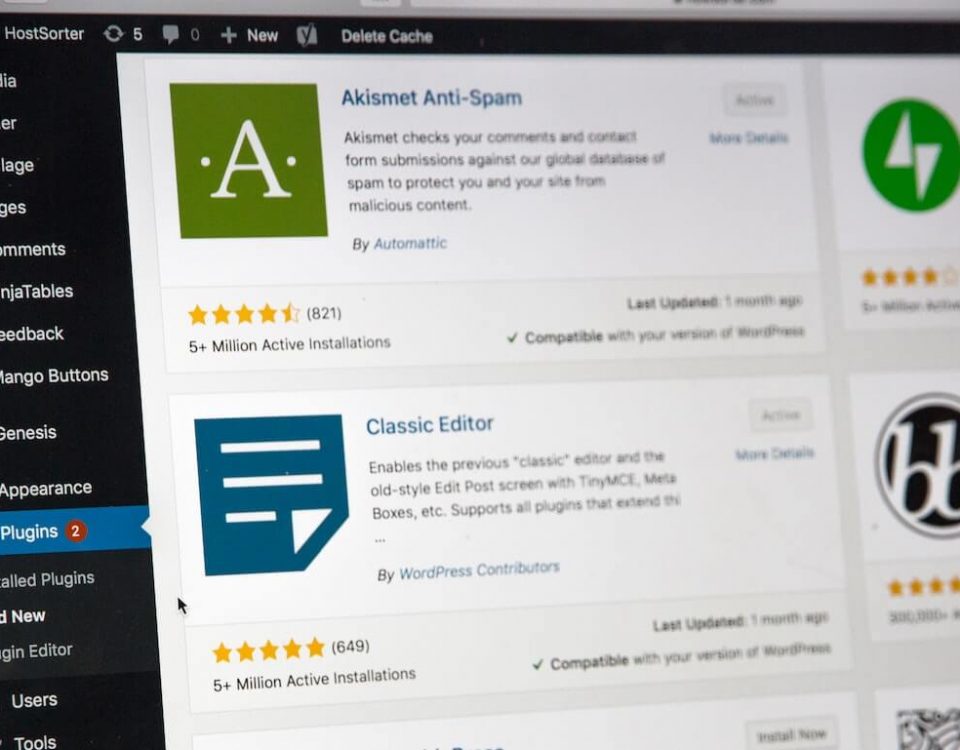Are Google’s Latest Updates Killing Your Rankings?

Has Google Killed Off Local Search?
January 6, 2016
How to Create Your Content Marketing Strategy
January 18, 2016It is confirmed – Google Panda is now part of Google’s core ranking algorithm.
What is Google Panda?
Technically speaking, Google Panda Update is a search filter which prevents websites with poor quality content to rank high in the search engine results page and allows websites with high quality content to be at the top of the list. Simply put, it is a penalty measure for websites with less than high-quality content. Moreover, it is considered to be one of Google’s best spam-fighting algorithms. If you find your search engine page rankings (SERPs) faltering, your website most probably contains one or more of the following:
- Duplicate content
- Automatically generated content
- Over- optimized content
- Affiliate pages
- Doorway pages
- Scraped content
- Some guest posts
The quality of your content will now play a major role in your rankings. Having several web pages with thin content probably won’t do any harm, but blank pages and pages with little or no original content can cause your website ranking to drop significantly.
How does this affect your website?
To protect your websites from being negatively affected by the Google Panda update, you need to improve the overall quality of your website. This includes having error-free navigation, good overall functionality and most importantly, high quality content.
The fact that Panda is now part of Google’s core ranking algorithm proves that high quality content is considered to be one of the most significant ranking factors. Google Webmaster Central has provided a list of 23 bullet points that answers answer the question: “What is a high-quality site?”
What is a high-quality site?:
- Would you trust the information presented in this article?
- Is this article written by an expert or enthusiast who knows the topic well, or is it shallower in nature?
- Does the site have duplicate, overlapping, or redundant articles on the same or similar topics with slightly different keyword variations?
- Would you be comfortable giving your credit card information to this site?
- Does this article have spelling, stylistic, or factual errors?
- Are the topics driven by genuine interests of readers of the site, or does the site generate content by attempting to guess what might rank well in search engines?
- Does the article provide original content or information, original reporting, original research, or original analysis?
- Does the page provide substantial value when compared to other pages in search results?
- How much quality control is done on content?
- Does the article describe both sides of a story?
- Is the site a recognized authority on its topic?
- Is the content mass-produced by or outsourced to a large number of creators, or spread across a large network of sites, so that individual pages or sites don’t get as much attention or care?
- Was the article edited well, or does it appear sloppy or hastily produced?
- For a health related query, would you trust information from this site?
- Would you recognize this site as an authoritative source when mentioned by name?
- Does this article provide a complete or comprehensive description of the topic?
- Does this article contain insightful analysis or interesting information that is beyond obvious?
- Is this the sort of page you’d want to bookmark, share with a friend, or recommend?
- Does this article have an excessive amount of ads that distract from or interfere with the main content?
- Would you expect to see this article in a printed magazine, encyclopedia or book?
- Are the articles short, unsubstantial, or otherwise lacking in helpful specifics?
- Are the pages produced with great care and attention to detail vs. less attention to detail?
- Would users complain when they see pages from this site?
In short, quality content is unique, relevant content that is useful and provides true value for your targeted audience. It should be clear, well-structured and readable with no distractions like ads and affiliate links. High-quality content must be researched and well thought out. Creating a website with this type of content requires a lot of effort and can be quite time consuming, but your visitors will appreciate it and Google requires it.
How to recover from a Panda penalty?
One of the simplest and fastest ways to get rid of Panda penalties is to improve the low-quality content on your website pages. However, in this case it doesn’t mean removing the page, but improving the content that is on it. Removing content can have major consequences because you may unknowingly delete the content that drives traffic to your site. Instead, try to upgrade thin content to valuable information.
It is possible for Panda affected websites to keep high positions in the search engine results page, because pages with high quality content will continue to rank. Adding new pages with quality content can be also very beneficial for restoring your website ranking.
If your SEO is not current, up to par or doesn’t follow real-time best practices, you could incur Panda penalities. Targeting the wrong keywords, having broken links and re-directions can be very harmful to your website ranking; improving the way Google indexes and crawls your site is highly recommended.
Creating, managing, and maintaining a SEO friendly website with unique, relevant and regularly updated high quality content is a requirement for business websites that count on being found by their desired targets, prospects and customers.
Having and maintaining a competitive site has become very complex. There are many requirements for a basic website to simply show up in a search query. There are as many things you must do and they must be done according to Google’s requirements. Simply not knowing them can cause your website to lose it hard earned rankings, incur penalties and worse, be taken down or blocked altogether.
Google’s Mission
All of this could make it seem like Google is simply trying to make your online life miserable or that they have ulterior motives. Google’s mission and goal is very simple. It is to provide exactly what you – the customer wants when you use their search engine for very specific results.
The requirements they put on website owners is so that the searcher receives at the top of page one, exactly what they are looking for. If your site isn’t best at providing that or if you aren’t implementing the most recent and highest level search engine optimization practices, your site isn’t going to show up any where near the top or even on the first few pages.
Ready to outperform your competition? Ready to increase your sales revenue, client retention and lead generation?
Give us a call. It’s free.
Whether you are looking for an SEO or Google expert or you simply need some questions answered, we’re happy to speak with you.





